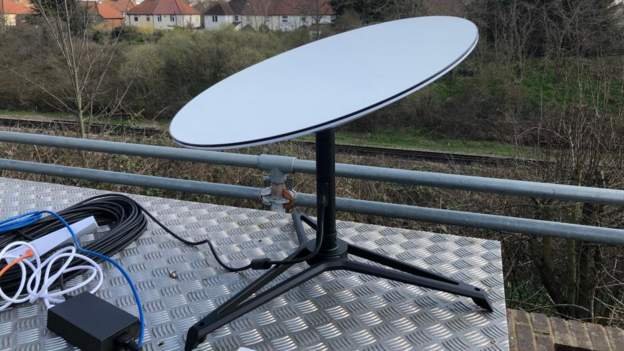South Africa Faces Internet Disruption as Starlink Plans Cutoff.
The discontinuation of Starlink satellite internet service in South Africa, as reported by local media, reflects the challenges faced by the company in navigating regulatory requirements and obtaining authorization to operate in various African countries.
The decision to halt services in South Africa follows similar actions taken in Zimbabwe and the Democratic Republic of the Congo due to regulatory directives. Additionally, Starlink has faced challenges in Botswana, where its application for a license was rejected, resulting in a ban on its operations.
Despite the setbacks, Starlink has attracted users in Africa, particularly in remote rural areas, due to its reputation for providing a more reliable internet connection than many local alternatives. However, the high cost of installation and subscription may limit its accessibility to certain demographics within the continent.
The discontinuation of Starlink services highlights the complexities of providing internet connectivity in Africa, where regulatory frameworks, infrastructure limitations, and market dynamics vary across countries. As companies like Starlink seek to expand their global footprint, they must navigate these challenges while adhering to local regulations and meeting the needs of diverse communities.
For Starlink and other satellite internet providers, proactively engaging with regulators is essential. They must seek to understand and comply with local laws and regulations governing telecommunications services. This includes obtaining the necessary licenses and approvals to operate legally within each country.
At the same time, regulatory authorities in African countries should strive to create an enabling environment for innovative technologies like satellite internet. This may involve streamlining the licensing process, providing clear guidelines for compliance, and ensuring transparency and fairness in regulatory decision-making.
Furthermore, efforts to expand access to reliable internet connectivity in Africa should prioritize investment in infrastructure development, particularly in underserved rural areas. Governments, private sector entities, and international organizations can collaborate to deploy broadband infrastructure and improve connectivity, thereby bridging the digital divide and fostering economic development and social inclusion.
Without satellite internet services like Starlink, exploring alternative solutions for improving internet access in remote and underserved areas is crucial. This may include leveraging existing infrastructure, such as mobile networks, and exploring innovative technologies like low-earth orbit satellites, fiber-optic cables, and wireless broadband solutions.
Ultimately, ensuring universal access to affordable and reliable internet connectivity is essential for driving economic growth, advancing education and healthcare, and empowering individuals and communities across Africa. By addressing regulatory challenges, investing in infrastructure, and fostering innovation, stakeholders can work together to realize the transformative potential of connectivity for the continent.


















